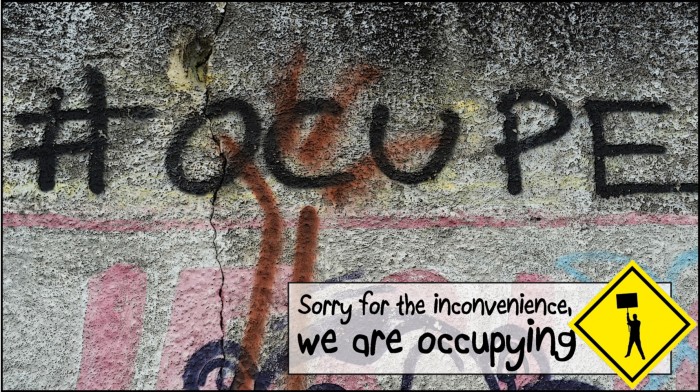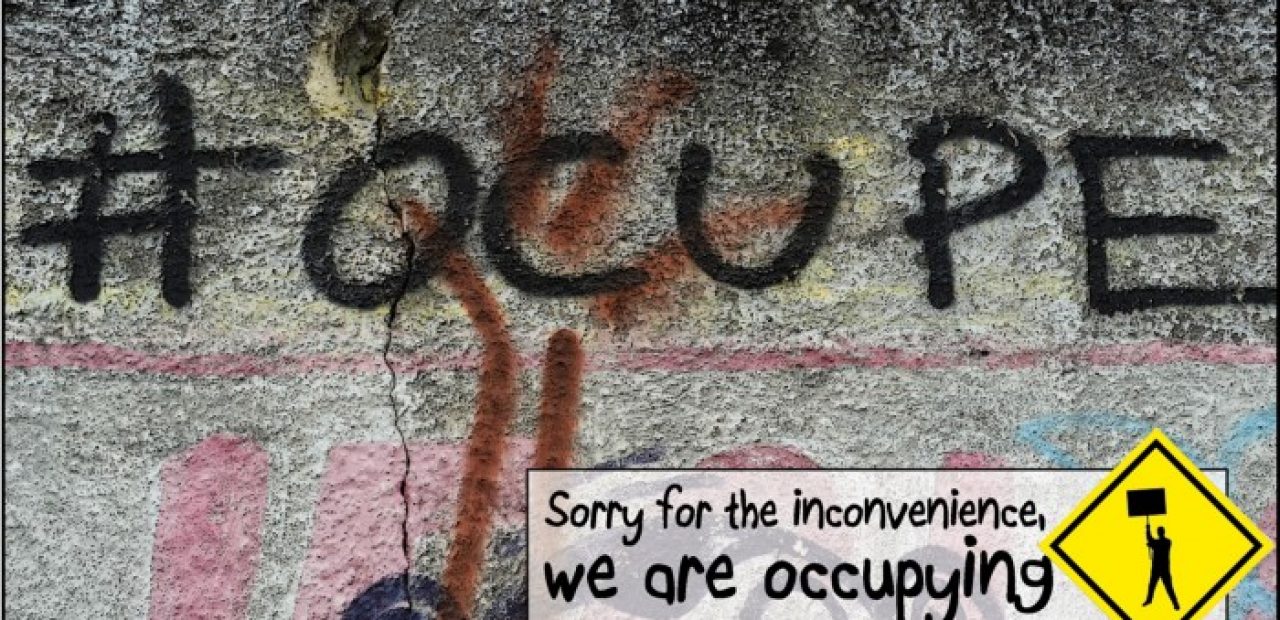Sorry for the inconvenience, we are occupying

Grafitti on the wall around Cais José Estelita, in downtown Recife (PE), call up for the movement.
Spontaneous mobilizations have been taking thousands of people in various parts of the country to occupy public spaces and fight for greener cities, with more attention to culture and history.
Brazilian dictionary Aurélio, already worn out, seems to have no doubt: the verb “occupy” can be a synonym of “work”, “take possession”, “conquer”. The adjective desocupado (unoccupied, but here meaning “unemployed”, “idle”) in Portuguese, however, has a pejorative connotation when it refers to a person who has no professional occupation and does not intend to get one. Lately, it has been used to label those who are involved in the new social movements. People responsible for giving other meanings to some words, beyond those meanings that dictionaries and critics can achieve. In Recife (PE), São Paulo (SP), Rio de Janeiro (RJ), Natal (RN), and in other corners of Brazil, thousands of people are occupied and concerned about “occupying”. Unhappy with the logic of big urban centers, these people have gathered together in voluntary mobilizations to rediscover public spaces and change ways of seeing and living the city. How about you? Do you remain there in your own “corner”?




